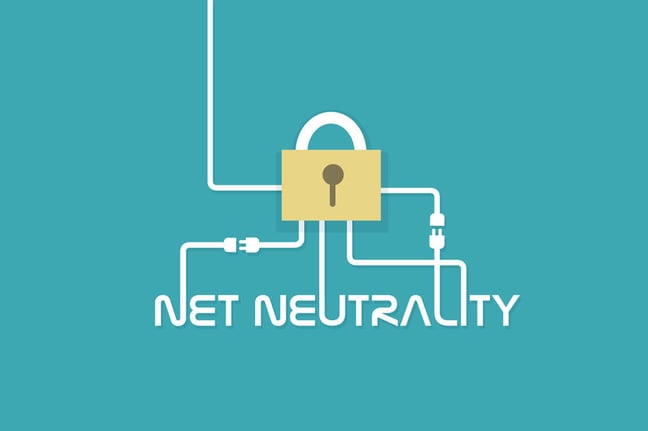
The phrase “net neutrality” gets tossed around a lot in the national media arena these days, but the term itself does not exactly reflect the issue that the FCC recently ruled on. While calling this the “Net Neutrality Ruling Debate” does simplify the topic for readers, it is an oversimplification of the overall problems facing the nation in regards to telecommunications and broadband providers. The actual debate behind the recent ruling is deciding how to establish a balance of power between large corporations, federal regulatory laws, and the consumers.
The Net Neutrality Ruling and How It Will Affect Local Business Owners:
Net Neutrality:
Net neutrality refers to the belief that the internet is a public utility that should be equally distributed to parties of all sizes. Essentially, this is meant to keep the internet free of private corporate interests since its free distribution is so integral to the functioning of modern society. Net neutrality, as the law existed before the recent ruling, was meant to prevent broadband providers from discriminating against certain companies and sites on the basis of content, opinions, platform, or modes of communication. For example, the law prevented a company from paying a provider to have its website load three times faster than the website of its nearest competitor. If the internet is viewed the same as other utilities, like power for example, clearly it would be problematic to turn electrical access into a bidding process between companies like this.
The Issue:
The problem is that the FCC recently overturned the previous ruling and decided that there was not sufficient jurisdiction to enforce net neutrality. Now, in theory, broadband providers could start charging companies and individuals for faster access to certain areas of the internet. Whether or not this will actually happen is still a matter of speculation but changes will become apparent by 2016.
The big picture of this issue represents the battle between the consumers, who want to actually be represented by the government, versus corporate service providers, who want the law to be written based upon their own financial interests via lobbying. Broadband companies stand to make a lot of money off being able to charge more for the same internet service, which has traditionally been of lower quality in America than the rest of the first world.
What happens next?
Generally, the federal government seeks to break up trusts and monopolies (or duopolies) in order to allow the free market to regulate itself. However some commodities, such as power and water, are too precious to modern life to give over to the whims of unrestrained capitalism. This entire debate centers on the inclusion of the internet into this list of industries that should be ran as a government regulated monopoly.
The problem is that currently large broadband corporations have more power than the government does to regulate them so they exist as unregulated monopolies in most areas of the country. Often one company can be the sole broadband provider for entire regions, leaving consumers little or no choice in whose service they subscribe to. The FCC’s recent ruling is only the first of what looks to be a long series of battles fought over control of the internet.
For more information on cyber law and telecommunications law, contact the Goosmann Law Firm at info@goosmannlaw.com or call (712) 226-4000.
Are you actively selling your business? Have you been given an offer that you (almost) can’t refuse?
Knowing what your company is truly worth is an important part of being a business owner, and Goosmann Law Firm is here to help make sure you are prepared for every possibility. Our FREE EBITDA CALCULATOR not only determines the Earnings Before Interest, Taxes, Depreciation and Amortization of a company, but it also breaks out your net profit, benefits, add-backs, and so much more.
You know how valuable your business is to you. Now it’s time to see how valuable it will be to those who may want to buy it. Download our EBITDA today to get started.






Let Us Know What You Thought about this Post.
Put your Comment Below.